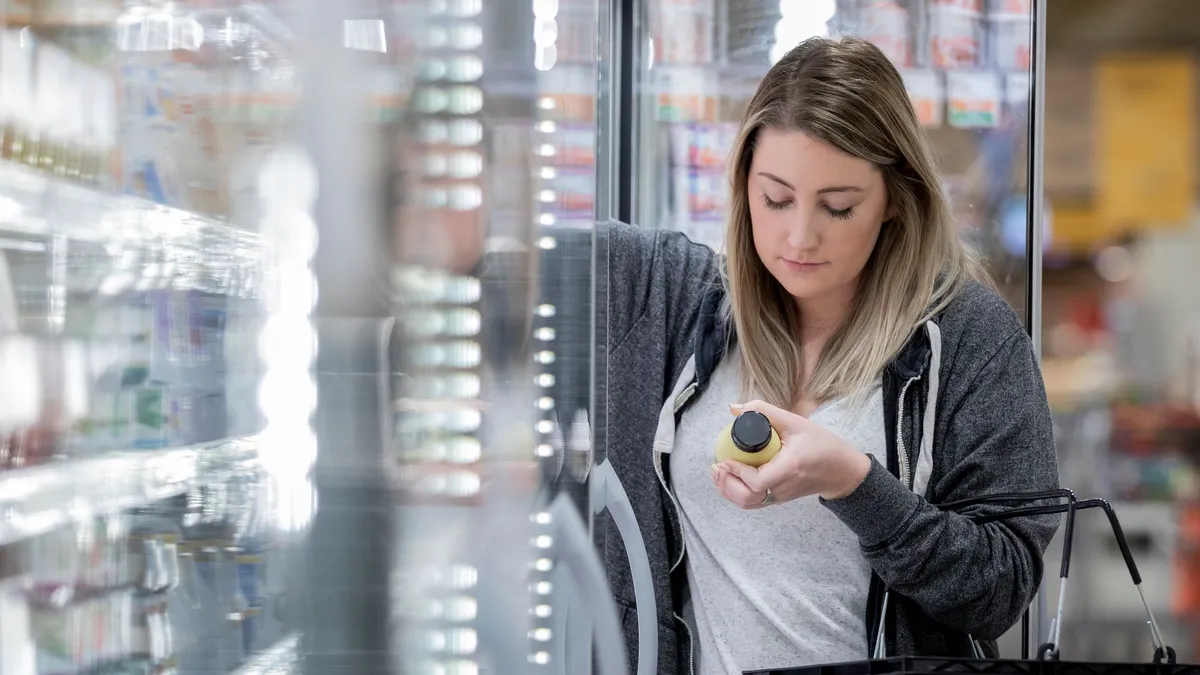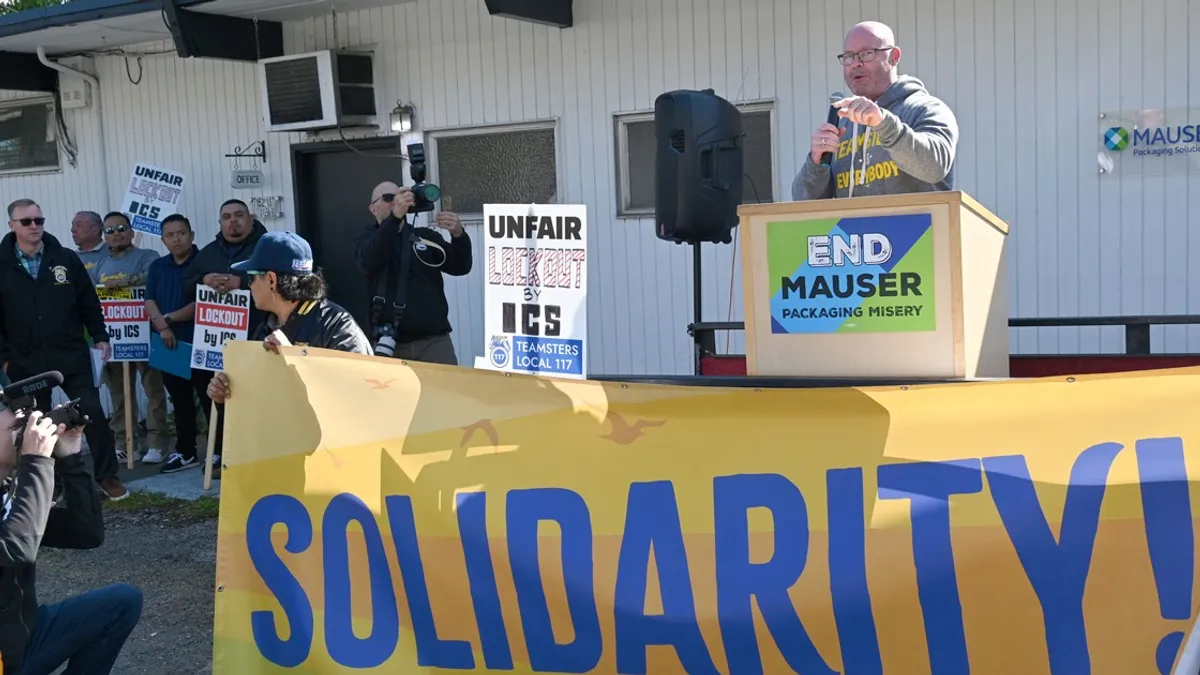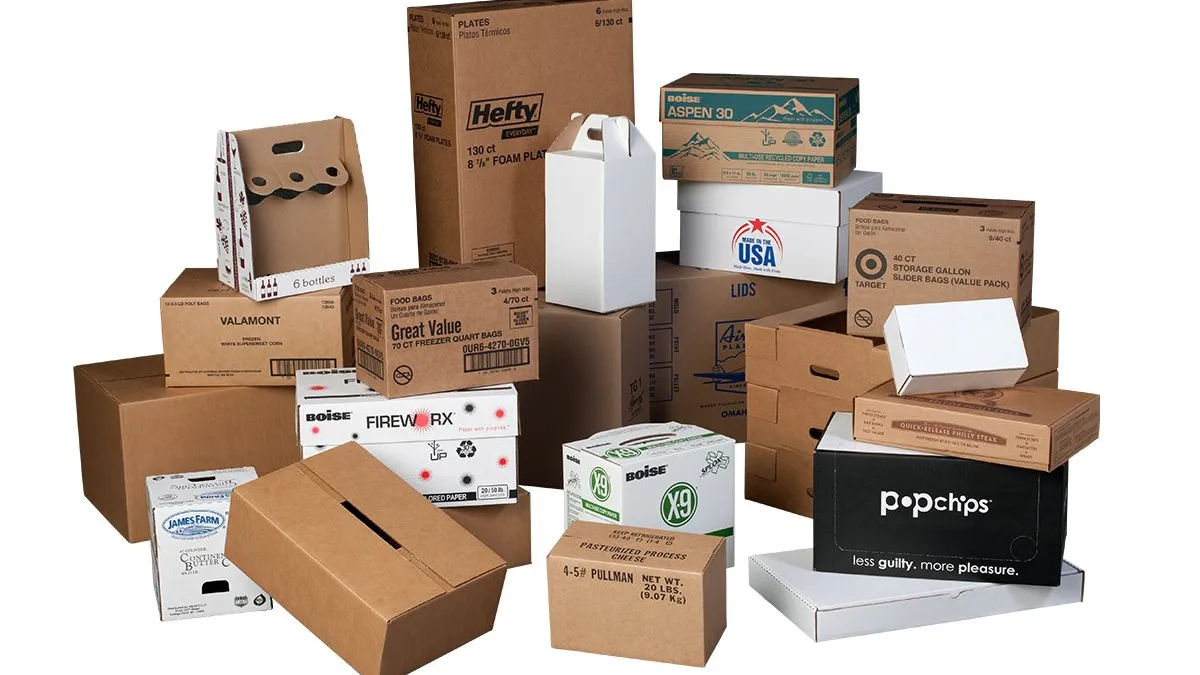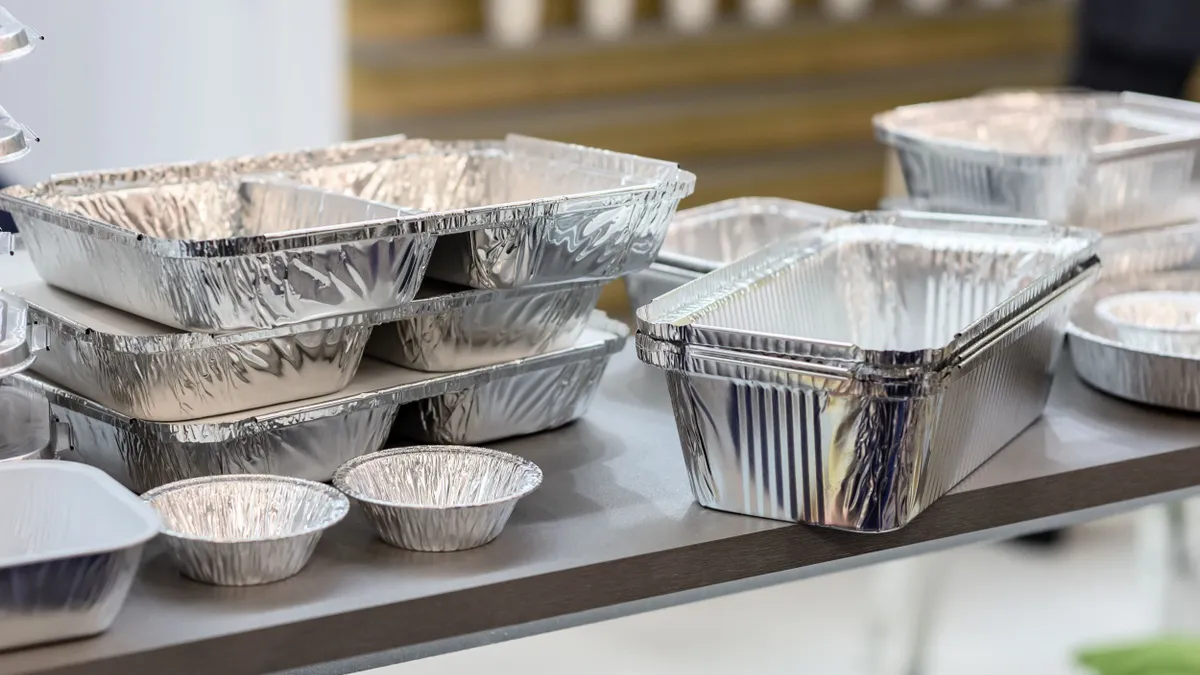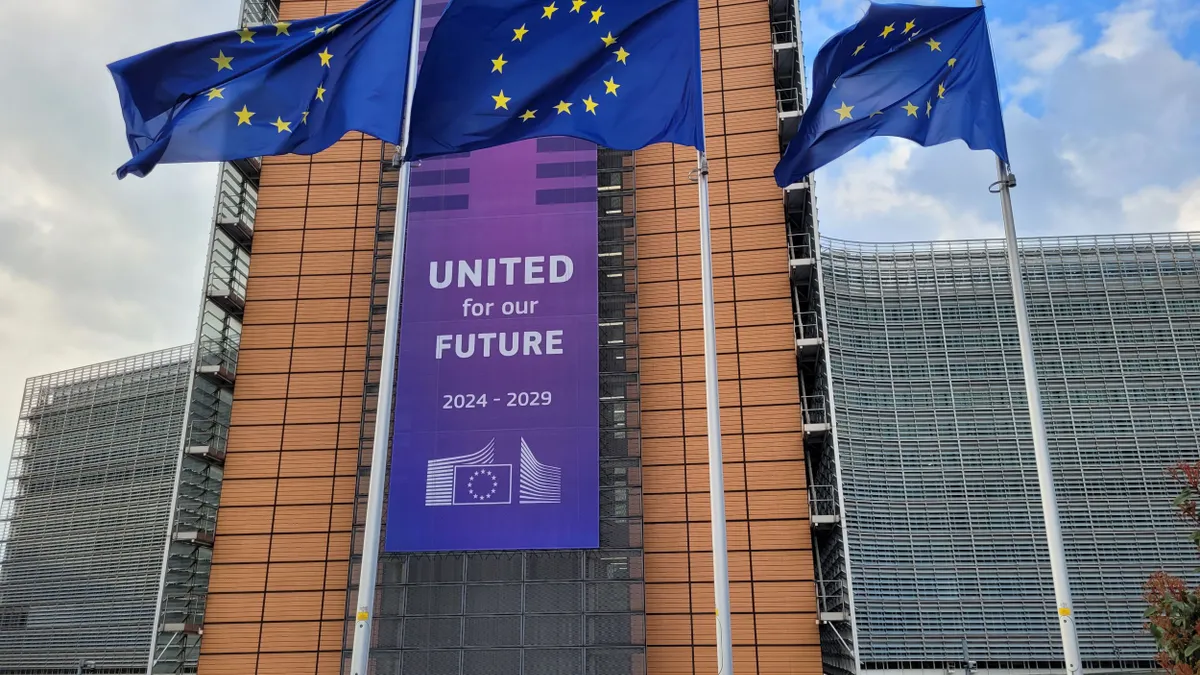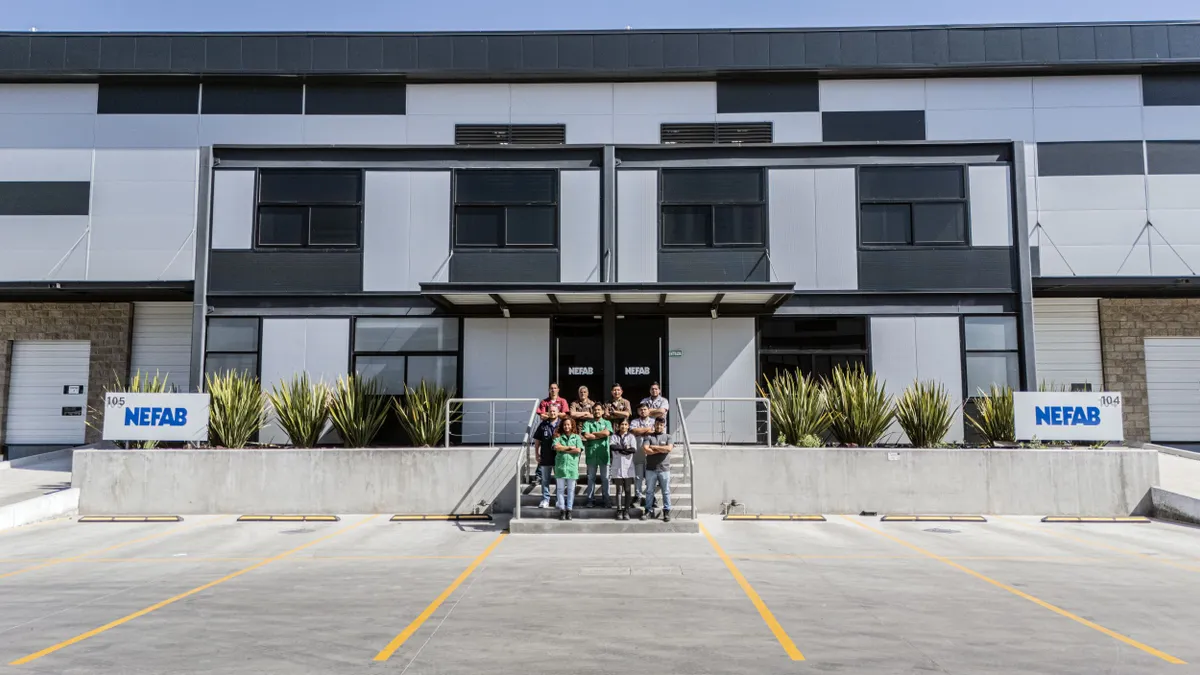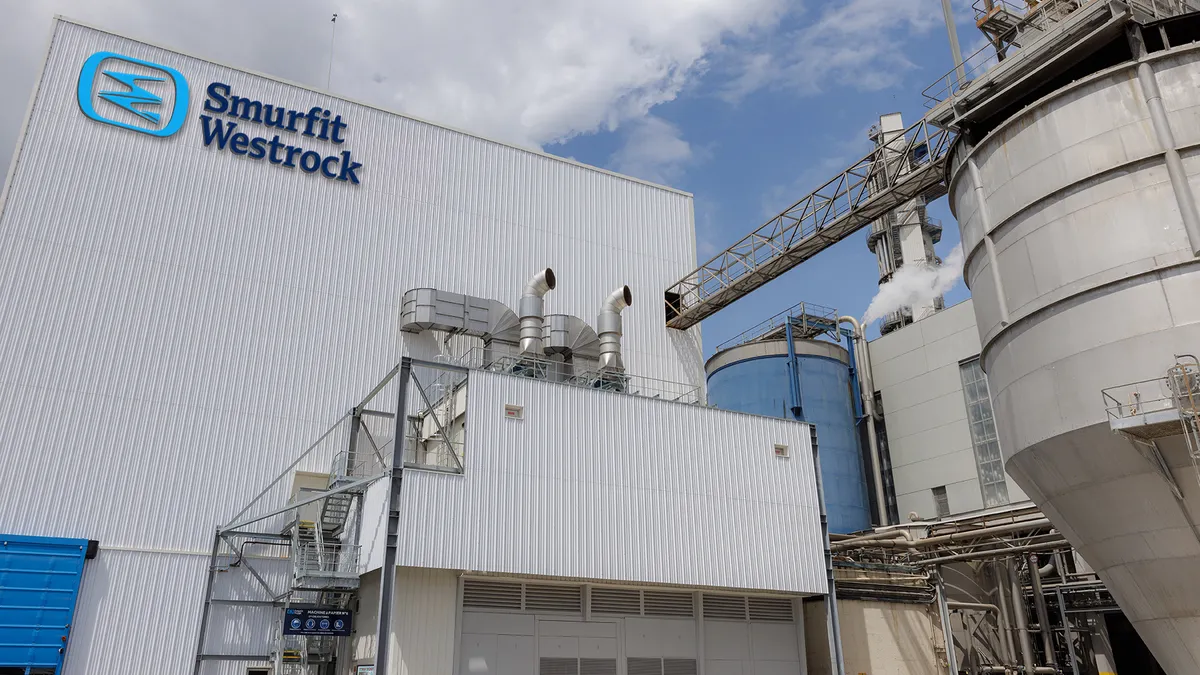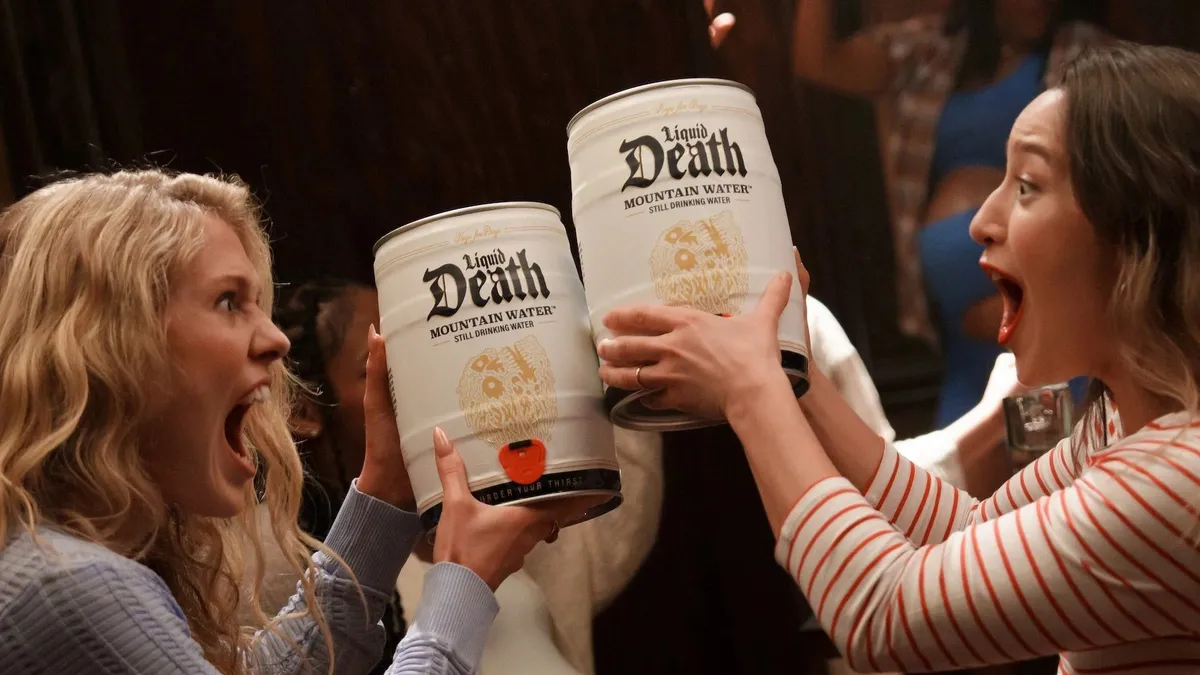This month, the Paperboard Packaging Council announced that it promoted Emily Leonczyk to executive director and vice president. She has been with the organization since 2018 and will now lead its operations.
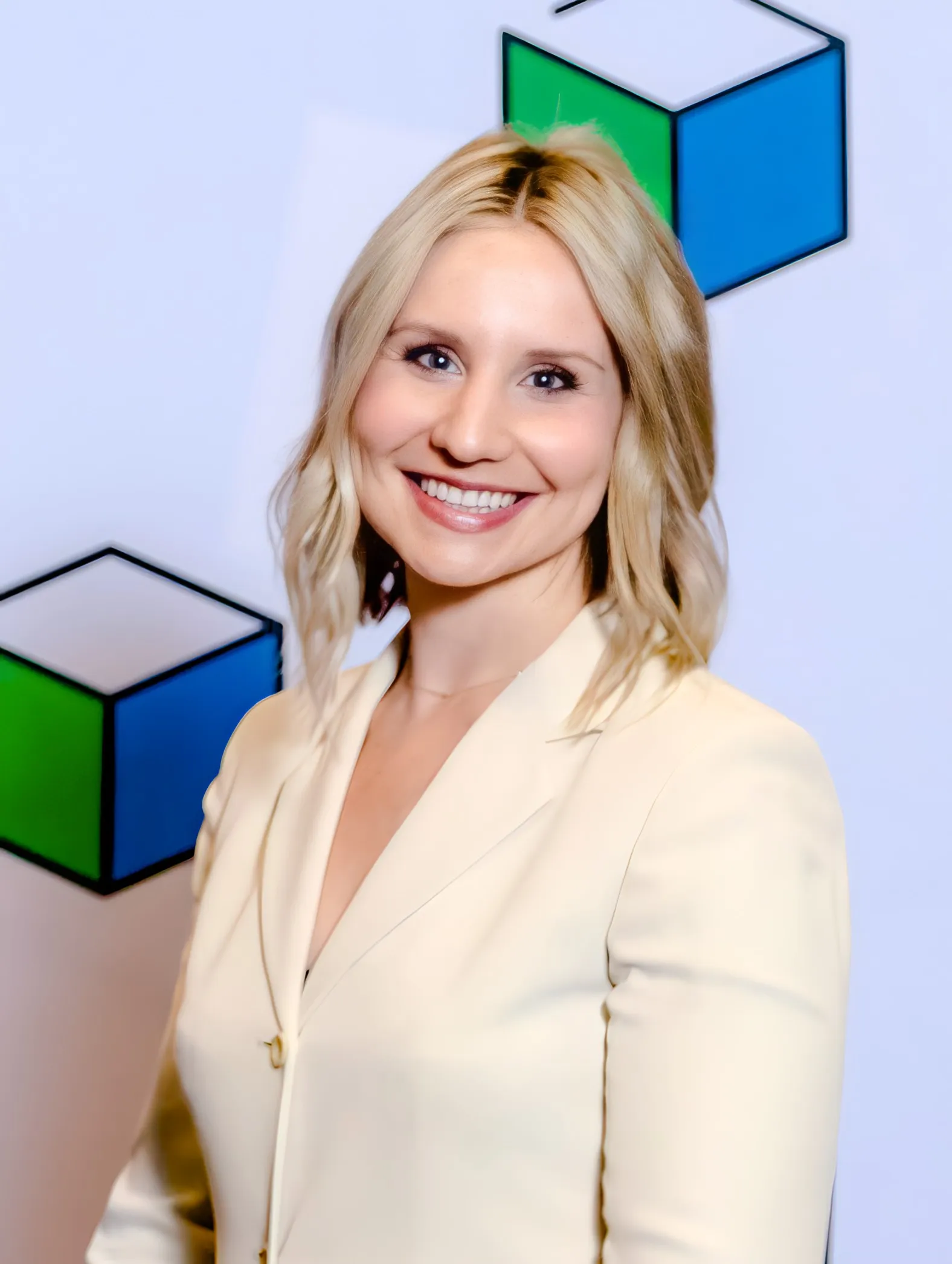
To fine-tune her vision for PPC’s work and ensure industry voices are heard, Leonczyk is embarking on a series of facility visits to meet members in person and hear their thoughts on the industry’s pressing issues. “Being feet-on-the-ground and shaking hands” in person will help PPC with “understanding what are the true needs of our members on the plant floor and being able to bring that home to headquarters and make change quickly,” she said.
Leonczyk spoke with Packaging Dive about her new role and the Paperboard Packaging Council’s trajectory.
This interview has been edited for length and clarity.
PACKAGING DIVE: Describe your vision for leading PPC as the new executive director, especially any changes to how things were done in the past.
EMILY LEONCZYK: My vision for the future is really based on being a good listener. And I think the pandemic has taught us that we need to be agile more than ever.
It starts with listening and recognizing that the evolving needs of our members and the industry need to guide our strategy. We have embarked on a journey to take a look at our member value proposition and how we are serving our members and the value of belonging to the Paperboard Packaging Council. We've started to shape a new future.
My vision is that this continues to evolve with the needs of our members and the needs of our industry. Instead of taking a look at what we've done in the past and maintaining status quo, let’s take a look at: Who do we want in the room? Who are the voices that need to be heard? What are the subjects we need to be talking about? And what's the technology that we're using to bring people together to make sure that the industry is growing and that we are continuing to look at how we grow, promote and protect the paperboard packaging industry, and make sure that our programs and our offering matches the need?
What do you view as the greatest challenges and opportunities for paperboard packaging in 2024 and beyond?
We base a lot of our decisions on listening to what's happening directly from our members and on trend information — that includes trend information that we collect from RISI Fastmarkets as well as our own benchmarking programs.
Relative to opportunities, RISI Fastmarkets is forecasting that folding carton demand is going to grow. The growth is gradual, but it is growth.
I think that the opportunity is we make sure that we are continuing to impact that growth through staying on top of technologies and making sure that our members are able to stay competitive in the marketplace. What does competitive mean? It means leveraging best-in-class technology and making sure that sustainability is top of mind.
For PPC, our opportunity here is to help serve our members. How are we bringing that information? How are we connecting members with learning and understanding what is best-in-class technology and giving them benchmark data to be able to be lean and make decisions on the ground?
The other piece of this is the workforce; and I think that is a challenge. While that's a challenge, that's also an opportunity for PPC to come in. We are currently building programs for future leader development: How do you spot future leaders and engage them? How do you keep them in the industry and keep them engaged in your companies? And how do we leverage the topics that you know the next generation care about the most, which is sustainability, recyclable packaging, compostable packaging? Those are all things that matter to consumers, and they matter to the future generation.
You mentioned sustainability. To what extent has sustainability played a role in PPC’s mission thus far, and do you intend to alter its significance in any way?
Sustainability, relative to industry affairs, is a huge initiative for us in 2024 and beyond. We've just embarked on a new industry affairs committee, which is going to be developing programming, information and resources. We’ll be able to deliver the tools and information to our members in a couple of different ways.
Learning modules are kind of an exciting thing we've got going on. We're launching an LMS (learning management system), online learning platform, in 2024 for our members that will have topics like sustainability. We also just started a new communication campaign. We are aggregating the information that our members need around sustainability — whether that's the resources to make decisions, or to connect with their customers — the information around sustainability to help our members stay current and agile. How do we leverage that to be able to benefit the industry and continue to grow it?
I understand you were instrumental in PPC’s 2018 rebrand. Explain why the organization launched the rebrand and what impact it has had since that time.
The idea was that we were 90-plus years old, and the way that we were bringing folks together on the website was outdated. So we started to look at what the brand of PPC needs to represent and also how that is translated onto the website and the software, the tools, the membership portal. How are we representing ourselves?
While there's a long history and deep roots within the industry, the need to be able to stay current and be on the forefront of what the future looks like was important. Taking a look at how we are representing ourselves as sleek and polished and ready to represent the future was important relative to the brand — and how we communicate that through our website.
Five years ago, we took a poll of our members to see what is it they want to do when they come to the website. They want to stay in touch, they want access to information, they want our press room to be alive and current and representing not only new technologies and best practices, but also the voice of their industry colleagues across the country. That was instrumental in how we allow the new brand and the website and all of the supplemental materials to really represent today's workforce.
In the announcement about your new role, you noted the responsibility that you have as a woman leader to support other women in the industry. Explain why it's important to you to champion women and diversity initiatives.
Walking into the industry, you can see that there isn't a ton of diversity — particularly at the at the leadership level — but it is growing. I think that the industry as a whole recognizes that being able to bring in different perspectives and expertise will only strengthen individual companies and the industry as a whole.
I think that women bring a different perspective and that we are going to be — and we have been — instrumental in leading change and building leadership capacity. Although diversity is still small and growing, I take a look at our chair, Laura Brodie, who is a fierce advocate for developing women leaders within her company [Burt Rigid Box], and I can see the benefit of it.
I think that it's important to me to be able to play a role in making sure that women feel comfortable, empowered and supported to be sitting at the table. Because we know that bringing in diversity in all ways, including women, is only going to strengthen individual businesses and the industry as a whole.
Is there anything else that you would like participants in the paperboard packaging industry to know about PPC or you in your new role?
I want people to know that PPC is really committed to playing a role in today and into the future. We have just fantastic leadership who want to see PPC leveraged as a tool to continue to grow, promote and protect the industry, and we are committed to being able to tweak our offering to meet the demands of what our members need.
I would invite folks who maybe haven’t thought that PPC was a resource in the past to join us. Our programs and our offerings are different than they were in the in the past. I think that what we're starting to do is really take a look at how we provide tools and information and resources and to go deeper into our member organizations to serve at different levels and to meet the needs of all of the all of the departments. We have a folding carton bootcamp. We have our benchmarking program. We have different awards where we're developing a future leaders program. We've got a community for design and innovation. There's really a place for everybody at PPC.





